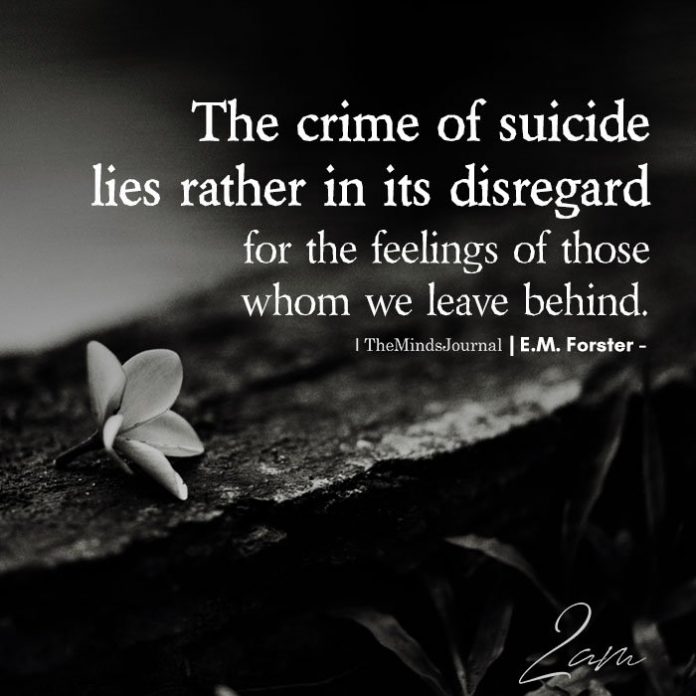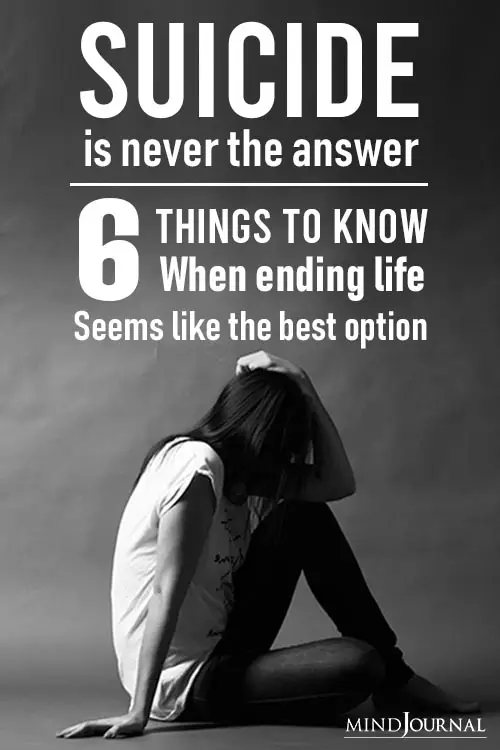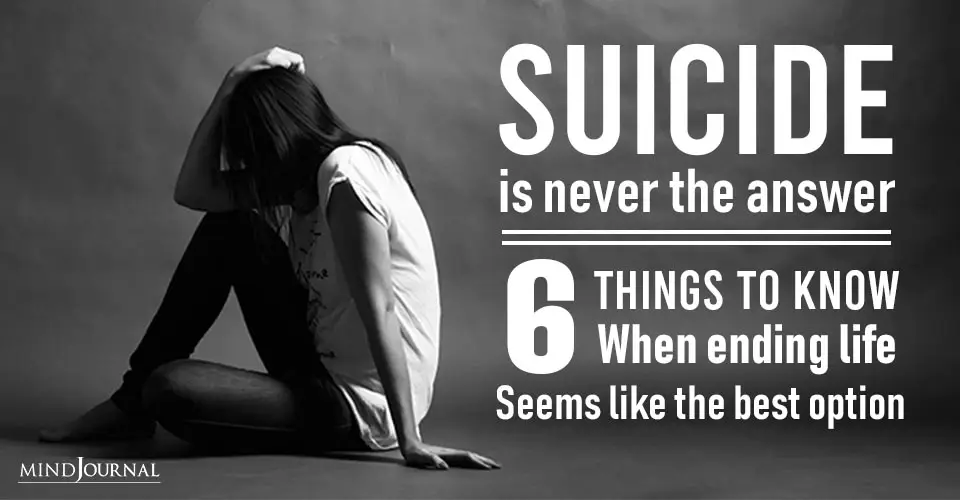What to do if you’re thinking about how to commit suicide? What you should know about Suicide BEFORE it’s too late!
While some spiritual teachers have presented suicide as a painless exit strategy or an instant cure for pain and suffering, there’s something very important they’re not telling you!
In fact, if you’re seeking long term relief to pain and suffering or you’re looking for an easy way out, there are 6 things you need to know about suicide before it’s too late!
6 reasons why Suicide Is Never The Answer
1. Suicide Results in a Psychedelic State!
Although we often associate psychedelic experiences with plant medicines, such as Ayahuasca or magic mushrooms, there are many ways to induce a psychedelic experience. For instance, did you know that the act of dying launches us into a full-blown psychedelic state?
Whether drug-induced or death-induced, psychedelic experiences often intensify our state of mind, and while unresolved issues and unhealed wounds are magnified, our most dreaded feelings surface (fear, loneliness, regret and even paranoia, etc…). Therefore, suicide could catapult us into a dark and difficult psychedelic state, and this could mean that we feel all the negative emotions that precipitate suicide more intensely on the other side!
Worse yet, while the psychedelic effects of plant medicines metabolize within a few hours, the effects of a suicidal death don’t wear off so quickly.
So, rather than providing immediate or permanent relief, as some spiritual myths might promise, suicide could intensify the exact pain and suffering we’re trying to escape, and therefore, things could get significantly darker before there’s any sign of light.
Related: 8 Risk Factors for Suicide
2. Life Review
According to people who have come back from Near-Death Experiences (NDE), we all experience a life review upon passing. During a life review, we experience the emotional ripple of all our actions, and regardless of whether our choices were conscious or unconscious, we feel all the positive and negative emotions that we caused others. Of course, this means that if our death is due to suicide, we feel all the intense pain and suffering of those we left behind.

3. Emotions Carry Over!
The act of suicide is not the real issue here, and in fact, if you took your own life when you were joyful, there might not be any negative consequences. But, of course, people don’t usually kill themselves when they’re living joyful and fulfilling lives. Instead, people who kill themselves do so when they’re at the depths of desperation and despair, and consequently, they take these negative emotions with them.
You see, we’re all carried on a river of emotion that runs through life and death, and while our dominant emotions create a specific vibration, that vibration dictates our fate well beyond the grave. This is why you should not commit suicide, else your mistake will torture you after death as well.
Since the vibration in which we cross-over determines “what happens next,” the negative emotions underlying the act of suicide could propel us into our own worst nightmare….and if this occurs, we must somehow find our way out.
Related: To The Friend, I Lost to Suicide
4. Universal Law of Attraction
According to the Universal Law, “As Above So Below,” the afterlife mirrors this world, and this would also mean that the well-known “Law of Attraction” doesn’t end with death. So, although we’ve been led to believe that death immediately ends all earthly suffering, if we cross-over with negative energy/emotions, our negativity inevitably attracts more negativity in the afterlife.
Furthermore, if we cross-over in the depths of despair, we could attract any number of dark entities who prey upon the lost, lonely and depressed. While these entities are cleverly disguised as light beings or spiritual guides, we could be easily fooled, and since they feed off negative energy, we could unknowingly become their human batteries (aka the fuel for dark souls). Additionally, if we get enrolled into one of their negative agendas, it could take a very long time to find our way out!
5. Reincarnation Wheel
Of course, at some point, we do experience a sense of relief in the afterlife, but unfortunately, it doesn’t last long, and before we know it, we’re ushered back onto the Reincarnation Wheel.
Since we take our false and disempowering beliefs with us into the next life, we likely repeat the same issues that we’re attempting to escape in this one, and in fact, our souls intentionally choose parents and circumstances that inevitably ignite those same issues (and we call it “karma”).
So, even though the characters may change and the storyline may appear different, the “moral of the story” stays the same…and since we’re destined to repeat the same issues over and over in various forms until we evolve our consciousness, suicide is a guaranteed ticket on the Reincarnation Wheel!
You should not commit suicide, because you will experience same misery in the next birth too. So, what’s the point amplifying the pain?
Related: Signs Of Reincarnation: Is Cellular Memory The Key To Our Past Lives?
6. Regrets from Suicide Survivors!
An infamous survivor who attempted to commit suicide by jumping off the golden gate bridge, later reported that he changed his mind on the way down. Fortunately, he survived to tell the story, but many more don’t. Apparently, according to survivors, it’s quite common to experience profound regret after taking definitive action.
These are 6 reasons not to commit suicide.
So, what do you do if you’re feeling suicidal?
Firstly, if you’ve got a definitive plan and you’re on the verge of suicide, seek professional help immediately. No matter what time it is, day or night, you can always call a suicide hotline (see information below). But, what happens when you call a Suicide Hotline?
For some reason, there have been a lot of false and detrimental rumors about suicide hotlines lately. Sadly, as a result of this misinformation, many suicidal people are afraid to call when they need it most, and many more don’t call because they’re convinced that it won’t help.
The truth is, suicide hotlines, all over the world, have saved countless lives. Since I was a suicide outreach counselor in New York for over seven years, I can personally attest to the fact that many of these dedicated volunteers have overcome their own challenges – and they have a deep desire to help others do the same.
Related: What Kind Of Afterlife Are You Destined For? Quiz
So, here’s what happens when you call most hotlines….
First of all, when you call a suicide hotline, you talk to a real person who’s trained to help! As caring and compassionate listeners, most suicide counselors know how to hold a safe, nonjudgmental space where you can process your feelings and talk about whatever you need to talk about (confidentially).
While helping you gain clarity on the issues that are causing you the most pain, the goal of the counselor is to help you find a solution that will get you out of immediate crisis – while also providing appropriate resources and referrals as needed.
Most importantly, calling a hotline is an instant remedy for loneliness….when you know that someone on the other end of the line really cares, suddenly, you’re not so alone!
Ditch the back-up plan!
Even if we never come close to taking definitive action, many of us think of suicide as a “back up plan” – and while this might not seem like a big deal, as long as we consider suicide an option, there’s no real reason to take ownership of our lives.
Consequently, instead of focusing on our lives and finding solutions to our challenges, we end up wasting precious time and energy, and in fact, every time we “glorify suicide” as an easy exit strategy, we lose the ability to make and implement conscious choices that could change our lives for the better.
““““““`
Even though it might sometimes feel like we’re powerless to circumstances beyond our control, this is simply not true! While we all have the potential to become Conscious Creators who can overcome any challenge, the real purpose of life is to evolve our own consciousness to the point where we can master reality.
However, if we use suicide as a reset button, not only do we lose our current level of consciousness and start over with amnesia, we inevitably replay the same issues from one life to the next. Unfortunately, this means that we ultimately delay our own evolution, and instead of waking up from this dream, we remain on the reincarnation wheel until we attain the necessary wisdom – and we are able to achieve mastery over our challenges!
Therefore, why perpetuate the sleep state through suicide, when you have the power to wake-up now?
Written By Nanice Ellis
Originally appeared on: Wake Up World









Leave a Reply
You must be logged in to post a comment.